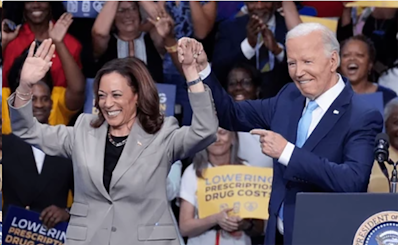In the closing days of the midterms, it seems that the all voters who turned out for and elected Joe Biden in 2020 might not show up on Election Day.
The news has been grim. Democrats aren’t doing enough to excite and turn out Black voters, Latinos might stay home in key states like Nevada, and a New York Times/Siena poll shows that women are evenly split between voting for Democrats or Republicans despite Democrats campaigning heavily on abortion access.
To make matters worse, Democrats lagged behind Republicans in voter registration in several key battleground states like Arizona and North Carolina for most of the election cycle. It’s not too late to mitigate some of the damage in states with same day voter registration during early vote and on Election Day, but it’s too late to close the gap in most states because voter registration deadlines have already passed.
Republicans built a voter registration advantage over Democrats early in the cycle at least in part due to party switching. More than 1 million registered Democrats across the country— especially in the suburbs—switched their party affiliation to Republican this cycle. In states like Pennsylvania, they’ve maintained that registration advantage despite earlier speculation that voter enthusiasm after the Supreme Court overturned Roe v. Wade could improve Democrats chances in November.
At Civitech, we analyzed the voter files in 9 key states and found that there was a sharp spike in the number of people who identify as female registering to vote immediately after the Dobbs decision. These new female registrations favored Democrats, however that voter registration spike quickly leveled off and did not overcome the registration advantage that Republicans built earlier in the cycle.
In addition, we did not see the typical surge in voter registration right before registration deadlines like we have seen in past cycles, including 2020. We just aren’t seeing that same surge in registration in states across the country—at least in part because national Democratic organizations, funders, and committees that have historically invested in voter registration work have decided not to do so this cycle.
The Democratic ecosystem must make early and sustained investments in effective voter registration programs in 2023, 2024, and beyond. As a party, we must focus on members of the New American Majority who are more likely to support Democrats but aren’t registered to vote—like Black folks, Latinos, women, LGBTQ+ people, young people, and poor people. If we expand the electorate, we can increase the number of voters who share our values and beliefs and turn them out cycle after cycle, election after election. These investments in voter registration must happen early in and throughout the cycle because newly registered voters can be left out of campaigns’ persuasion and get-out-the-vote universes when they register late in the cycle—blunting their turnout and electoral impact.
If Democratic decision makers want to win elections, they have to invest in same-day voter registration programs. Long-term, our party must commit to registering new voters all the time. Otherwise, we will lose cycle after cycle.


